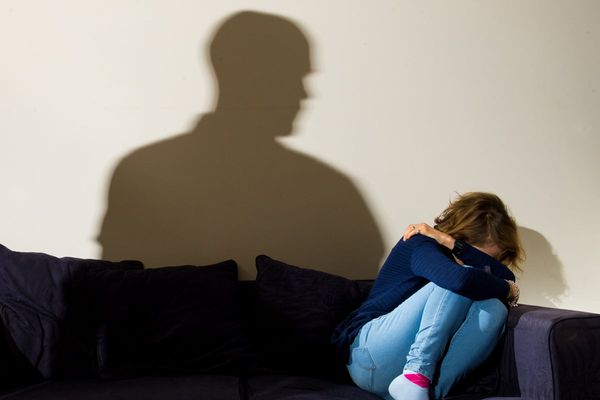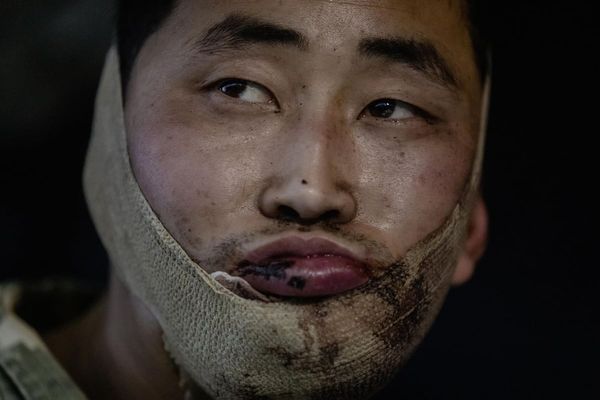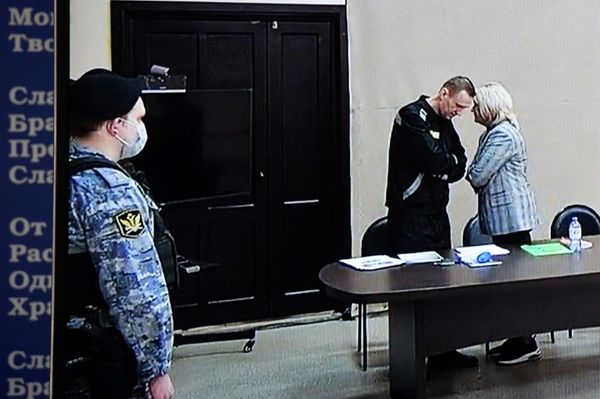PHILADELPHIA — Two weeks after her daughter died, Kim Robinson-Presley finally admitted to her husband that she needed help.
Robinson-Presley's daughter, Kimera Robinson, overdosed in February 2021. Self-effacing and bubbly, a mother of three, Kimera had been especially close with her own mother. She had struggled with a heroin addiction for years, and Robinson-Presley, who's in long-term recovery herself, helped as best she could, supporting her daughter through stints of sobriety and relapses.
In the fall of 2020, Robinson-Presley persuaded her daughter to leave Philadelphia and come home to Gettysburg. Kimera battled through withdrawal and stayed off drugs for months, reconnecting with family members and planning for the future.
One week in February, Kimera decided she was going back to the city. Robinson-Presley begged her daughter to stay, anxiety causing stomach pains so sharp that her husband called an ambulance. Kimera left anyway, and for days, the family didn't hear from her.
The phone rang on a Friday morning. It was the Philadelphia Medical Examiner's Office. "Unfortunately ... ," the caller began.
Robinson-Presley remembers screaming and throwing the phone across the room.
"From there, I feel like my life was a movie. A game. A play," she said.
She tried to suppress her grief in front of her grandchildren but couldn't hold it in for long. She pushed away family members who suggested she just move on.
"I was really, really in a bad place," she said. "And one day, my husband called me from work — and I was out of my mind. I told him that I was afraid for myself."
Robinson-Presley still marvels at the coincidence. Her husband was calling to tell her about a counseling service that had contacted him that very morning. Within moments, he connected his wife to Kaitlin Worden, a social worker on a city health department team that helps people who've lost loved ones to overdose. Worden offered Robinson-Presley a spot in a bereavement support group. Reluctant as she was, Robinson-Presley said yes.
"I took a chance that I didn't want to — because it's so touchy, and I didn't really want to talk about it," Robinson-Presley said. "But I'm really grateful that I did."
Dozens of grieving people have participated in group and individual therapy through the bereavement program, started in the Medical Examiner's Office in 2019 with overdose deaths spiking again. The number would only worsen with the COVID-19 pandemic.
The office already offered similar help for families of gun violence and suicide victims.
"Shortly after I started, it was clear that there were so many people who could benefit," said program director Laura Vargas, the licensed clinical social worker who started the program. Support groups and individual counseling have continued online during the pandemic.
This year, Vargas and her colleagues have been training Robinson-Presley and other members of some of the longer-running support groups to operate independently, so the program can launch even more groups. Robinson-Presley will start leading group sessions next month. The program is also hosting a series of one-session workshops on grief.
For Robinson-Presley, it's been a lifeline — especially coming from rural Gettysburg, where such supports are harder to come by. "I just like the fact that I can be myself — where I'm at right now in my grief process, I'm very angry. I can't tell that to everyone that I'm around all the time. But knowing that everyone on that call understands — that's a beautiful thing."
The office reaches out to as many families as they can; out of 1,214 overdose deaths in 2020, Vargas and her colleagues were able to find about 1,000 families, she said.
The number of families that choose to participate in the program is comparatively small: Between 40 and 50 people are currently participating in support groups, Vargas said, and an additional 15 to 20 are undergoing individual grief counseling. But for its participants, the service is vital.
"Laura has a term — complicated loss," said Rachel Zervas, of Lansdowne, who lost her daughter, Claudia, in 2020.
"When someone has been going through substance abuse for a decade, you love that person, but they've also done a lot of things that hurt you," she said. "Most people don't get that. But with this group, everyone gets it. It's a place where you can talk about some of those more complicated, hard-to-explain reactions that we're having."
Stigma and shame around addiction mean some family members of overdose victims feel even more isolated in their grief, Vargas said.
Amarilis Ruiz, who lost her brother, Carlos, to an overdose in 2019, said the group has helped her family process his death, in a way they wouldn't have been able to on their own.
"There's stigma with addiction — there's a lot of shame and guilt," she said. "My mom, in particular — I had to convince her to let me tell one of my brother's closest friends that he had died of an overdose, and even to this day, a lot of her friends don't know. But in the group, she was able to talk about what she was feeling. She made friends. And it made it possible for us to be more open and vulnerable with each other. It brought us closer together."
As the overdose crisis has ballooned in Philadelphia and is affecting more families of color, the bereavement program has adapted to accommodate different cultural perspectives on addiction. "It's something we saw early on, this stark shift in demographics," said Vargas, who is Latina and speaks Spanish with many of her clients. "And we're also recognizing that outreach efforts are different in different communities."
The changing face of today's opioid overdose crisis, once stereotyped as affecting mostly white people, comes up in the support groups, too, said Robinson-Presley, who is one of two Black women in her group.
"I brought this up in group the other day — that we'll see articles about [white overdose victims] — and you don't see anything about the Black people that are passing away," she said. "Why isn't my child important? She was loved, heavily. I had to turn people away from her funeral. What's the difference from [a white overdose victim]? The same substance took them out."
In sessions, group members discuss the intensely personal — their own feelings of guilt or shame — and the universal, like the stress of the pandemic and the proliferation of the powerful synthetic opioid fentanyl, which has contaminated much of Philadelphia's drug supply.
Nashai Berry-Hill, who lost her father, Michael Hill, to a fentanyl overdose in September 2020, said the chef relapsed after a long period of recovery. He'd been struggling with the isolation of the pandemic and had only just returned to work after the spring lockdowns.
In her personal therapy sessions with Vargas and Worden, and in her group sessions, she's talked about her shock over her father's death and the sense of unreality she still feels when she thinks about the counterfeit pharmaceutical pill that likely cost him his life.
"I didn't have time to grieve when my father died, but dealing with this group is allowing me to find small moments when I can," Berry-Hill said. "If I have to cry, and I have room and the time to do it, I need to do it — as opposed to just constantly shelving the emotions."







